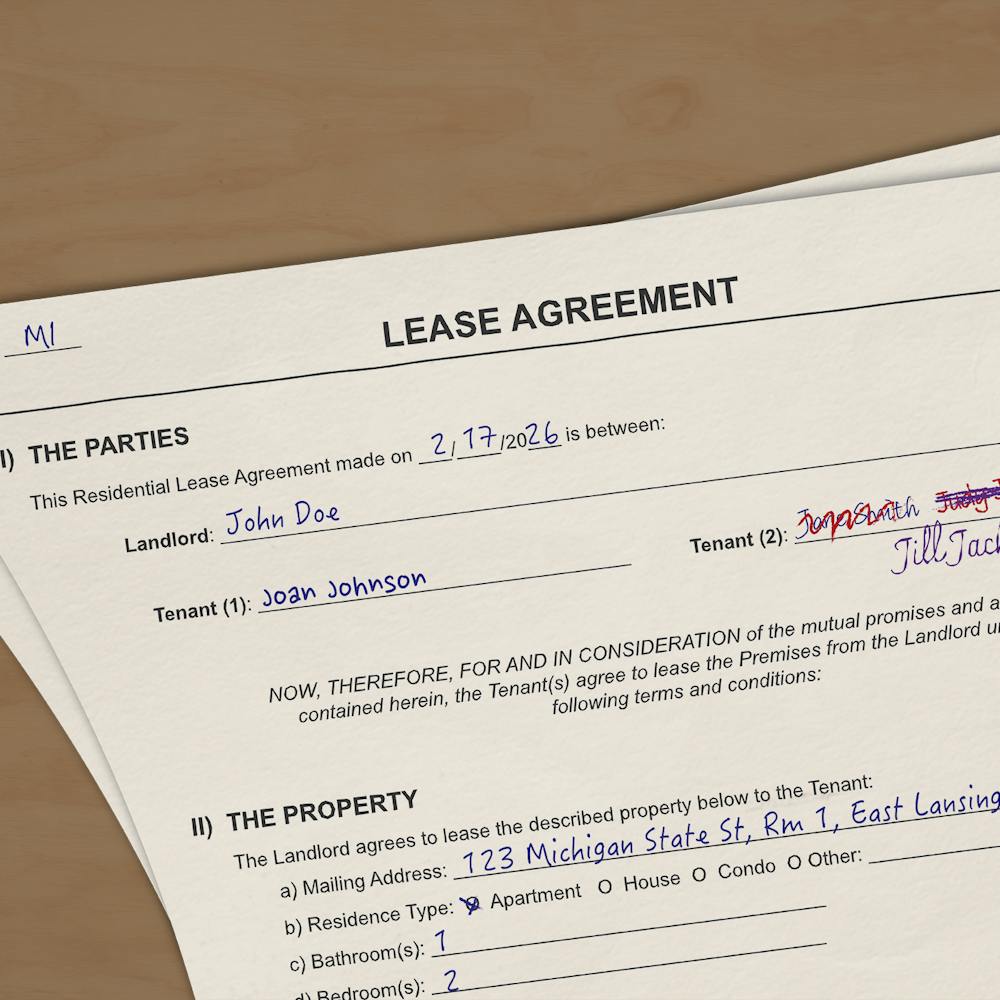Gin and tonic.
Rum and cola.
No matter the drink of choice, the cost of liquor may be on the rise for spirit-loving Michiganians and liquor retailers.
Seeking funds for public safety and education programs, Gov. Jennifer Granholm proposed increasing liquor license fees and the retail markup of liquor in the state budget, presented Feb. 8.
The markup targets distilled spirits such as vodka, gin or rum. Beer and wine wouldn't be affected.
The proposed markup would increase the price of liquor by less than 5 percent and the profits would be transferred to the state's general fund.
The state currently receives $11.5 million annually from 35,000 liquor licenses in use throughout the state. These licenses range in price, costing $100-$600 annually.
The $22 million generated by the license fees' increase could give more funds to state and local public safety, which includes police and fire programs in towns, cities and villages. Nearly $14.4 million could be divided among cities, and the remaining $7.6 million could be awarded to the Department of Labor & Economic Growth and the Michigan State Police.
The new fees come with a hefty price and could cause some retailers to close their doors, said Cathy Pavick, executive director of the Michigan Licensed Beverage Association, or MLBA, in a press release.
"Tripling annual liquor license renewal fees is a tremendous burden for many businesses to shoulder," she said.
The MLBA wants the state legislature to explore alternate sources of revenue.
"An increase can result in a catastrophic blow to small businesses that have been here for decades," Pavick said.
According to a press release from the Distilled Spirits Council of the United States, the markup would eliminate 1,800 jobs in the hospitality sector, which includes bartenders and waiters.
Greg Bird, director of communications for the Office of the State Budget, said the state doesn't believe the increases pose a long-term threat to local businesses.
"They will help us invest in those things that will help us create jobs and help our economy in the long run," he said.
Other proposed uses for the revenue include providing increased funds for health care and higher education. Bird said the office wants the legislature to approve the changes by the beginning of April so they can be implemented by June.
Kyle McPhail, a telecommunication, information studies and media senior, said the increase could affect bars and restaurants — especially in East Lansing — because of the high student population.
"It's bad for consumers," he said. "Liquor is already expensive as it is, especially at the bars."
Any increased cost could affect students' choices to go out, McPhail said.
"A lot of them charge cover on top of the price of alcohol," he said. "So I could see myself staying in a lot more."
Of the revenue currently collected, 55 percent is given to local law enforcement agencies, 41.5 percent is granted to the Liquor Control Commission and 3.5 percent is used for substance abuse programs.
"These are fees that haven't been changed in 30 years," Bird said. "We think it is a sensible and reasonable way for us to raise revenue."
Tiffany Holloway, a finance senior, said the proposed tax's benefit outweighs the cost and could cause other adverse effects.
"(The cost) will go to consumers," she said.
Holloway said she has noticed a wide range of prices on the same items at East Lansing bars.
"What is going to happen is that bars are going to end up competing for students," she said.






